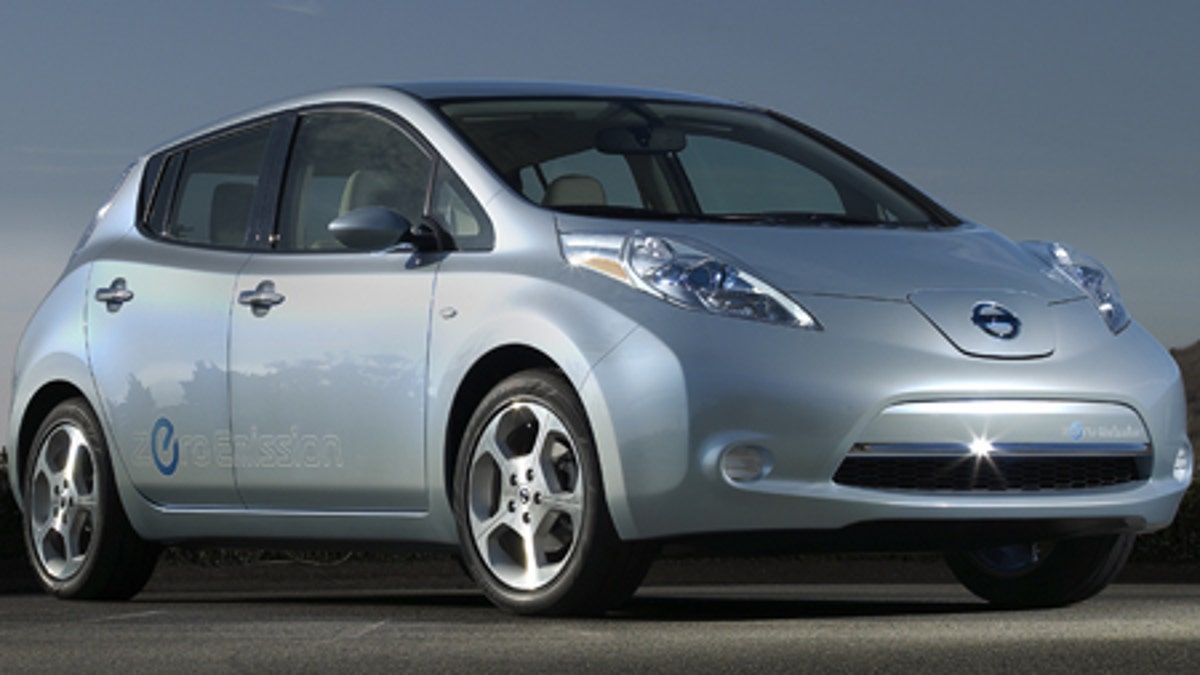
Nissan Leaf (Nissan)
WASHINGTON – Bullish on green cars, the chief executive of the Renault-Nissan automotive alliance said Monday they plan to produce and sell 500,000 electric vehicles a year around the globe by the end of 2013.
Carlos Ghosn, who leads Japan's Nissan Motor Co. and France's Renault SA, said he was optimistic that consumers will warm to electric cars as his companies take a major plunge into the zero-emission vehicles. In December, Nissan is releasing the Leaf electric car, with a range of 100 miles, in the United States and Japan.
"I don't think for the first three years the issue will be, 'Are you going to be able to sell everything you produce?' Because there is such a curiosity about the car and attention to the car," Ghosn told reporters in Washington.
Nissan and Renault have been on the vanguard of producing vehicles running solely on electricity and have made electric cars a key part of the automotive alliance's strategy. General Motors is introducing the Chevrolet Volt this year, which uses an electric battery for the first 25 to 50 miles and a small gasoline tank to create an additional charge for another 300 miles. Other automakers are developing similar vehicles.
Ghosn said Nissan and Renault would have four electric vehicle models each by 2013. Along with the Leaf, Nissan's electric lineup would include a commercial vehicle, a small city car and a luxury vehicle. The automaker plans to build 200,000 battery packs and 150,000 electric vehicles in Tennessee and will build the vehicles elsewhere around the globe.
Ghosn said the automaker's research has found that 10 percent of buyers around the world want an electric car. He said Nissan will be constrained only by its production capacity for the Leaf during the next three years. After that initial period, Ghosn said he was hopeful the cars could be competitive with traditional vehicles powered by internal combustion engines without any government incentives.
Car shoppers can receive a federal tax credit of $7,500 to buy an electric car and some states and cities are offering additional subsidies.